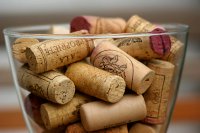Spliced feed for The Science Network |
| The Doradus Nebula [SciScoop Science Blog] Posted: It has often been said that every storm cloud has a silver lining. As a person with both mental and physical disabilities, I don't get to do much in life, but unlike many I get to put much more time into my art. With permission from NASA to create artworks based on their astronomy images, I like painting bright colorful recreations, like a recent series based on the Doradus nebula. |
| Alcohol Causes Cancer [Sciencebase Science Blog] Posted: 18 Jun 2008 07:00 AM CDT
Alcohol blamed for oral cancer risk - A large-scale statistical analysis of mouth and throat cancer incidence over a long period of time has looked at possible correlations between exposure to industrial chemicals, dust and alcoholic beverages in a wide variety of individuals in different occupations across Finland. The perhaps surprising conclusion drawn is that alcohol consumption rather than industrial chemicals or dusts is the critical factor associated with this form of cancer. Get the full story in this week’s edition of my SpectroscopyNOW column here. I suppose it’s a little ironic that in the same edition of Spec Now, I’m also writing about how to make beer taste fresher and last longer on the shelf. NMR spectroscopy, and a chromatography sniff test have yielded results that could help brewers improve the flavour and shelf-life of beer thanks to work by scientists in Venezuela. The team has identified alpha-dicarbonyls as important compounds that reduce beer’s flavour and point to a new approach to brewing beer that stays fresher, longer. Take a sip here… Meanwhile, another subject of mixed messages regarding health benefits is that perennial favourite chocolate. To maintain the seductive and lustrous brown gloss of chocolate, so enticing to chocoholics the world over, food technologists must find a way to prevent fat bloom from forming on the surface and turning the surface an unappealing grey. Now, scientists from Canada and Sweden have found new clues to understanding the microstructure of chocolate and what happens when it turns grey with age. More… Finally, some straight chemistry with absolutely no hint of biomedicine, health, or pharmaceutical implications (yet). A novel structure studied using X-ray crystallography hints at the possibility of a carbon atom that, at first site seems to be a little different from the conventional textbook view. Could the oldest rule of organic chemistry have been broken at last, or is low atomic separation being equated too keenly with the presence of a bond, or could there be something else afoot, as Steve Bachrach suggests? Read on… A post from David Bradley Science Writer |
| Posted: 17 Jun 2008 07:44 AM CDT Failure Mode Effects Analysis I mentioned it a few weeks ago. In a nutshell it is a relatively fast and dirty way of weighting and assessing relatively relative priority of risks. It is not a risk assessment and certainly not a ALE but if you combine it with a good series of BIA's linked empirically to the Failure Effects that are assessed against it can close a lot of gaps with not much work. If I were a consultant looking for a quick way to add risk prioritization value to a client I would certainly look into it. If the ratings table is properly developed it also significantly reduces the controversy of the rankings quite a bit. More later |
| Cars of the future [Earth & Sky Podcast] Posted: 17 Jun 2008 04:06 AM CDT Urban planner Mitchell Joachim was challenged to design a car that’s more environmentally friendly. Hear him talk about how he literally reinvented the wheel. This posting includes an audio/video/photo media file: Download Now |
| You are subscribed to email updates from The Science Network To stop receiving these emails, you may unsubscribe now. | Email Delivery powered by FeedBurner |
| Inbox too full? | |
| If you prefer to unsubscribe via postal mail, write to: The Science Network, c/o FeedBurner, 20 W Kinzie, 9th Floor, Chicago IL USA 60610 | |

No comments:
Post a Comment